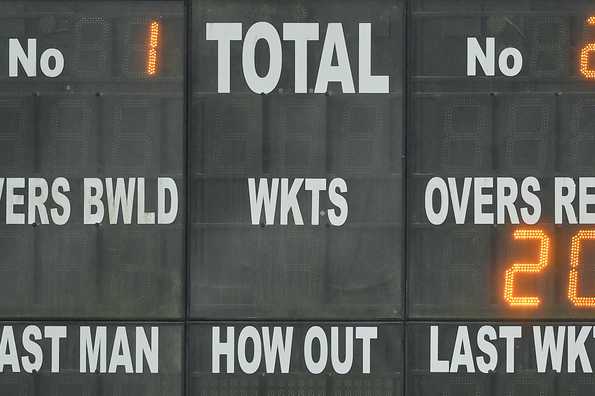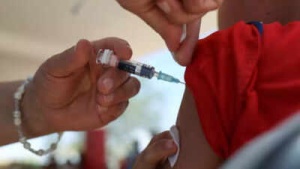The International Cricket Council (ICC) has announced adjustments to the Playing Conditions for Twenty20 Internationals (T20Is), with a key modification focusing on PowerPlay calculations. Specifically, the length of the PowerPlay will now be determined by rounding to the nearest ball, rather than the nearest over.

Under the existing rules, the first six overs constitute the PowerPlay, typically representing 30% of a full 20-over innings. However, when innings are shortened due to weather or other delays, rounding to the nearest over can lead to significant discrepancies in the proportion of PowerPlay overs.
To address this, the ICC has introduced a table specifying the number of PowerPlay overs based on the reduced length of the innings. This table applies to both the first and second innings of a match.
| Match reduced (overs) | Powerplay overs |
|---|---|
| 5 | 1.3 |
| 6 | 1.5 |
| 7 | 2.1 |
| 8 | 2.2 |
| 9 | 2.4 |
| 10 | 3 |
| 11 | 3.2 |
| 12 | 3.4 |
| 13 | 3.5 |
| 14 | 4.1 |
| 15 | 4.3 |
| 16 | 4.5 |
| 17 | 5.1 |
| 18 | 5.2 |
| 19 | 5.4 |
For example, previously an 8-over innings would have had 2 PowerPlay overs, and a 9-over innings would have had 3. Under the new regulations, these innings will have 2.2 and 2.4 PowerPlay overs respectively, maintaining a proportion closer to 30%.
The ICC stated that this system has been successfully used in the T20 Blast in England for several years without causing any issues for players or officials. They believe this method is the preferred approach moving forward. In the 8-over example, the umpire will signal the end of the PowerPlay after 2 balls of the 3rd over, at which point three additional fielders can move outside the inner circle.
The ICC has also updated the guidelines for concussion replacements in Men's T20I matches. Teams are now required to identify and name potential replacements before the start of the match. This measure aims to create a level playing field by mitigating any home team advantage associated with having a larger pool of available players. Teams are encouraged to nominate the following replacements:
The ICC acknowledges that Associate Member teams may face challenges in identifying five specific concussion replacement players for each match, particularly when playing overseas. The system adopted for Associate Member T20Is will accommodate this.
Teams can nominate a batter as the replacement wicketkeeper. However, the match referee has the discretion to determine whether the nominated batter must keep wicket if used as the replacement or allow another player from the starting XI to do so. The primary goal is to ensure a like-for-like replacement, preventing teams from gaining an unfair advantage by introducing another batter.
The same player can be nominated for multiple categories. For example, if an all-rounder is nominated for more than one position and replaces a batter, the referee may restrict them from bowling. There is no requirement for the concussion replacement to be limited to the playing squad; teams can nominate any eligible player.
The overriding principle remains a like-for-like concussion replacement, and the referee will make decisions based on the specific circumstances at the time, ensuring that the replacement player is sufficiently similar to the injured player.
For home teams, nominating five specific replacement players is generally easier, as they can draw from a wider pool of players outside the selected squad. Away teams, typically with a touring squad of 14, should nominate the three players not in the playing XI, with two of them nominated twice. If eligible players are available outside the squad in the country where the team is playing, they can also be considered as nominations.
In exceptional circumstances, the match referee may consider a replacement player who is not among the nominated replacements.
Regarding the use of saliva on the ball, the ICC has clarified that if any substance, including saliva, is used to alter the condition of the ball, it is mandatory for the ball to be replaced. This new clause is designed to prevent teams from deliberately applying saliva to the ball in an attempt to force a replacement.
These changes currently apply only to Men's playing conditions. Women's playing conditions will be updated in October. The new playing conditions will take effect from July 10, 2025.
Newer articles
Older articles
 Esha Gupta Sets Record Straight: Actress Addresses Hardik Pandya Dating Rumors
Esha Gupta Sets Record Straight: Actress Addresses Hardik Pandya Dating Rumors
 Google Maps to Boost Navigation Accuracy with Fused Orientation Provider API
Google Maps to Boost Navigation Accuracy with Fused Orientation Provider API
 Global Vaccination Rates Plunge: Millions of Children Now Vulnerable to Preventable Diseases
Global Vaccination Rates Plunge: Millions of Children Now Vulnerable to Preventable Diseases
 Rishabh Pant: Greg Chappell Hails India Star as Cricket Revolutionary
Rishabh Pant: Greg Chappell Hails India Star as Cricket Revolutionary
 Skin Cancer Alert: How to Identify Suspicious Moles and Early Warning Signs
Skin Cancer Alert: How to Identify Suspicious Moles and Early Warning Signs
 Gavaskar Calls for Kuldeep Yadav's Inclusion in Second Test Amid Bumrah Fitness Concerns
Gavaskar Calls for Kuldeep Yadav's Inclusion in Second Test Amid Bumrah Fitness Concerns
 Is Daily Pooping a Must? Understanding Bowel Regularity and When to Worry
Is Daily Pooping a Must? Understanding Bowel Regularity and When to Worry
 Suryakumar Yadav's Sports Hernia: Understanding the Injury, Recovery, and Risk Factors for Athletes
Suryakumar Yadav's Sports Hernia: Understanding the Injury, Recovery, and Risk Factors for Athletes
 Vijay Sethupathi Apologizes Amid Controversy Over Son Surya's Debut Film 'Phoenix' and Alleged Video Removal Pressure
Vijay Sethupathi Apologizes Amid Controversy Over Son Surya's Debut Film 'Phoenix' and Alleged Video Removal Pressure
 Install Baccarat Hack Tool: The Secret to Winning
Install Baccarat Hack Tool: The Secret to Winning